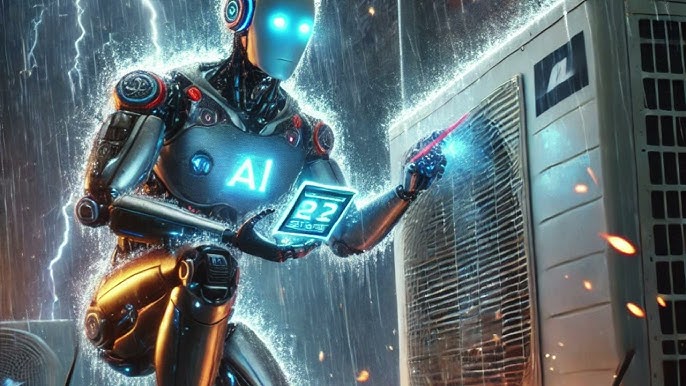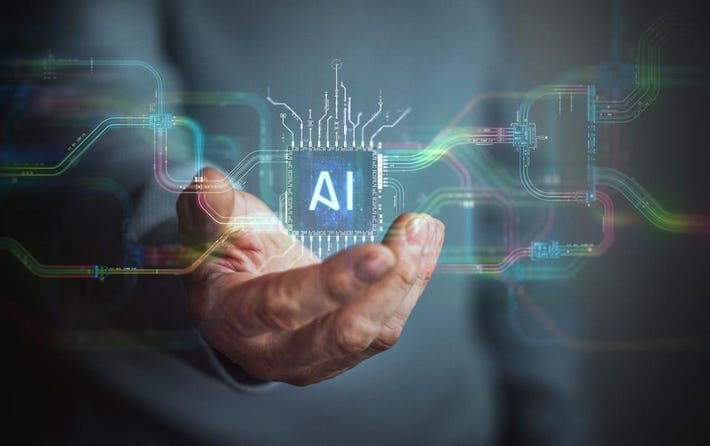In the modern world, maintaining optimal indoor air conditions is crucial for both comfort and health. One of the persistent challenges faced by Industry QA Professionals is managing humidity issues within HVAC systems. With the advent of technology, specifically Artificial Intelligence (AI), diagnosing these issues has become more efficient and precise. This article delves into how AI can revolutionize HVAC diagnostics, helping professionals address humidity challenges effectively.

Understanding HVAC Humidity Challenges
Humidity control is a vital aspect of HVAC systems. Excessive humidity can lead to discomfort, mold growth, and even health issues, while low humidity can cause dryness and respiratory problems. Traditional methods of diagnosing humidity issues often involve manual inspections and trial-and-error approaches, which can be time-consuming and inaccurate.
The Role of AI in Modern HVAC Systems
AI has emerged as a game-changer in the HVAC industry. By leveraging advanced algorithms and machine learning, AI systems can analyze vast amounts of data to identify patterns and anomalies that might not be evident to human inspectors. This capability is particularly useful for diagnosing humidity issues, as AI can pinpoint the root cause faster and with greater accuracy.
How AI Diagnoses Humidity Issues
AI systems utilize sensors and data from various sources within the HVAC system to monitor humidity levels in real-time. These systems can detect deviations from normal patterns, alerting technicians to potential issues before they escalate. For instance, AI can identify if a particular component is underperforming or if there is a leak affecting humidity levels.
Benefits of Using AI in HVAC Diagnostics
The integration of AI in diagnosing HVAC humidity issues offers numerous benefits:
- Precision: AI provides highly accurate diagnostics, reducing the margin of error.
- Efficiency: AI-driven diagnostics are faster than traditional methods, saving time and resources.
- Predictive Maintenance: AI can predict potential failures, allowing for proactive maintenance and avoiding costly downtime.
- Cost-Effectiveness: By reducing the need for manual inspections and preventing major breakdowns, AI can significantly lower operational costs.
For more insights into how AI enhances HVAC systems, you can explore AI-powered reports that are transforming inspections.
Challenges in Implementing AI for HVAC
Despite its advantages, implementing AI in HVAC systems is not without challenges. These include the initial cost of setup, the need for skilled personnel to manage AI systems, and concerns about data privacy and security. However, as technology advances and becomes more accessible, these challenges are gradually being addressed.
The Future of HVAC Diagnostics with AI
The future of HVAC diagnostics looks promising with AI at the helm. As machine learning algorithms become more sophisticated, AI systems will continue to improve in diagnosing not just humidity issues but a wide range of HVAC challenges. This evolution will lead to more resilient, efficient, and cost-effective HVAC systems.
Additionally, AI’s role in predictive fault management is crucial for preemptive maintenance strategies.
Case Studies: AI in Action
Several case studies highlight the successful implementation of AI in diagnosing HVAC humidity issues. Companies have reported significant improvements in system performance and customer satisfaction after integrating AI technologies. These real-world examples serve as a testament to the transformative power of AI in the HVAC industry.
Conclusion
In conclusion, the integration of AI in diagnosing HVAC humidity issues represents a significant advancement in the industry. By offering precise, efficient, and proactive solutions, AI not only enhances system performance but also improves indoor air quality and comfort. As technology continues to evolve, the potential for AI in HVAC systems is boundless, promising a future where humidity issues are a thing of the past.
For further reading on AI’s impact on HVAC design and performance, consider visiting this external resource.

Frequently Asked Questions
1. How does AI improve HVAC diagnostics?
AI improves HVAC diagnostics by providing accurate, real-time analysis of system performance, identifying issues quickly, and enabling predictive maintenance.
2. What are the cost implications of using AI in HVAC systems?
While the initial cost of implementing AI can be significant, the long-term savings from reduced maintenance costs and improved system efficiency often outweigh these expenses.
3. Can AI completely replace human technicians in HVAC diagnostics?
No, AI cannot completely replace human technicians. Instead, it acts as a tool that enhances their capabilities, allowing for more accurate and efficient diagnostics.
This article contains affiliate links. We may earn a commission at no extra cost to you.
